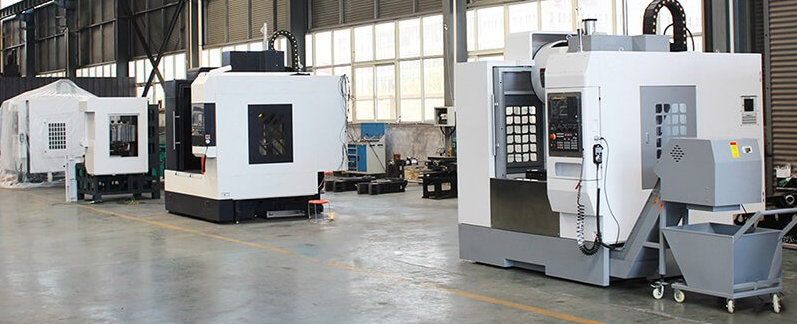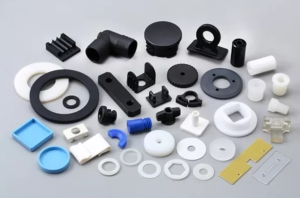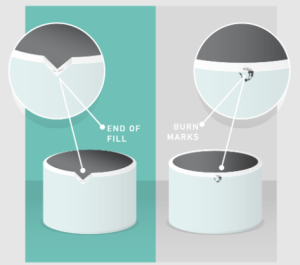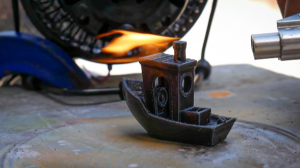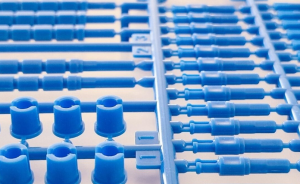A CNC machine, which stands for Computer Numerical Control machine, is a programmable device that uses computer software to control machining tools and automate the manufacturing process. These machines can precisely cut, drill, mill, and shape materials like metal, plastic, wood, and composites to create complex parts and components. Here’s a comprehensive explanation of what a CNC machine is, how it works, and its applications:
What is a CNC Machine?
A CNC machine is an automated machine that follows a programmed sequence of instructions to perform various tasks such as cutting, drilling, milling, and shaping materials. It is controlled by a computer that uses numerical data to guide the movements of the machine’s tools.
How Does a CNC Machine Work?
- Design and Programming
- CAD (Computer-Aided Design): The process begins with creating a detailed digital design of the part using CAD software.
- CAM (Computer-Aided Manufacturing): The CAD file is then converted into a CAM file, which generates the G-code. G-code is a programming language that tells the CNC machine how to move its tools to create the desired part.
- Machine Setup
- The raw material (workpiece) is secured on the CNC machine’s worktable.
- The appropriate cutting tools are mounted on the machine.
- Loading the Program
- The G-code file is loaded into the CNC machine’s controller, which interprets the instructions.
- Execution
- The CNC machine’s controller directs the motors and drives to move the tools and workpiece along specified paths and axes (typically X, Y, and Z axes).
- The cutting tool performs the programmed operations (cutting, drilling, milling, etc.) with high precision and accuracy.

Choose us for your custom injection molding needs and experience excellence in every detail. Our China-based factory provides innovative solutions, competitive pricing, and fast turnaround times. Get your custom quote now!
Types of CNC Machines
- CNC Milling Machines
- Used for cutting and shaping materials. The material is held stationary while a rotating tool moves along multiple axes to remove material and create the desired shape.
- CNC Lathes
- Primarily used for producing cylindrical parts. The material rotates while a stationary cutting tool shapes it.
- CNC Routers
- Similar to milling machines but typically used for softer materials like wood, plastics, and composites.
- CNC Plasma Cutters
- Use a high-temperature plasma torch to cut through metals.
- CNC Laser Cutters
- Use a focused laser beam to cut or engrave materials with high precision.
- CNC Electric Discharge Machines (EDM)
- Use electrical discharges to erode material, commonly used for hard metals.
- CNC 3D Printers
- Use additive manufacturing techniques to build objects layer by layer from materials like plastics and metals.
Advantages of CNC Machines
- Precision and Accuracy
- CNC machines can produce highly precise parts with tight tolerances.
- Consistency
- They can produce identical parts repeatedly, which is crucial for mass production.
- Efficiency
- Automation reduces the time and labor required for production, increasing overall efficiency.
- Complexity
- Capable of producing complex shapes and intricate designs that would be difficult or impossible to achieve manually.
- Flexibility
- Easily reprogrammed to produce different parts, making them highly versatile.
- Safety
- Reduce the risk of human error and accidents since the process is automated.

As a leading mold injection manufacturer in China, we deliver superior molds for various industries. Our state-of-the-art facilities and expert team ensure top-notch quality and timely delivery. Contact us now for a competitive quote!
Applications of CNC Machines
- Automotive Industry
- Production of engine parts, gears, and other components.
- Aerospace Industry
- Manufacturing of precision parts for aircraft and spacecraft.
- Medical Industry
- Creating medical devices, implants, and surgical instruments.
- Electronics Industry
- Producing circuit boards, enclosures, and various electronic components.
- Woodworking
- Crafting furniture, cabinetry, and decorative items.
- Prototyping
- Rapid prototyping for product development and testing.
Conclusion
CNC machines are integral to modern manufacturing, offering unparalleled precision, efficiency, and versatility. They are essential tools in various industries, enabling the production of high-quality, complex parts and components. By automating the manufacturing process, CNC machines significantly improve productivity and reduce the potential for human error.
Related Conten: Custom Plastic Extrusions

